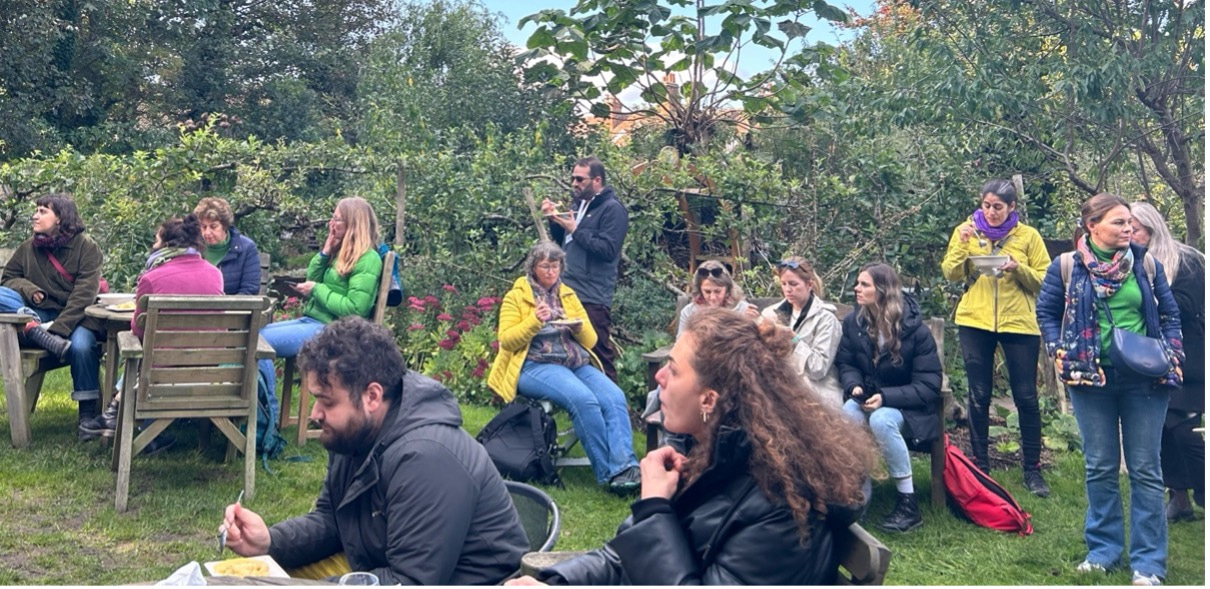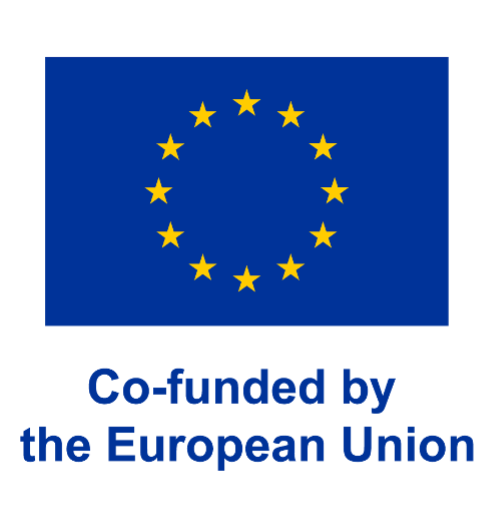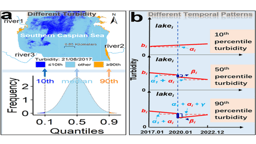The GreenME project for mental health: The need for complementary therapeutic interventions
Published in Earth & Environment, Public Health, and Behavioural Sciences & Psychology

What is the issue to be addressed and how?
Mental health is a significant health concern in Europe. Depending on the sample population’s age and the research year, estimates place the prevalence of mental health issues in Europe between 17% and 38%. Despite the broader negative impacts of mental health conditions, funding for them often lags other health problems. The incidence and severity of mental health conditions have been exacerbated by the increasing prevalence of pandemics and climate change-related events. In response to noticeable funding constraints and the amplification of global stressors, it is essential to review alternative therapeutic options. One potential pathway is through nature, which has been reported to be an effective buffer for mental ill health during the COVID-19 pandemic.
Nature’s positive effect on wellbeing is well established in literature (Gascon et al., 2015; Houlden et al., 2018; Silva et al., 2024). Nature-based Therapy (NBT) is a treatment form which employs activities, guided interactions and exposure to nature to improve mental health outcomes. Mindful engagement with nature is shown to have significant benefits for our wellbeing and improve mental health conditions (Bettmann et al., 2024; Wood et al., 2023). Participants in nature-based therapeutic interventions have been shown to have positive mental health outcomes (Antonelli et al., 2022; Carneiro et al., 2024; Darcy et al., 2025). Furthermore, the facilitating role of the practitioner can increase the benefits of these interventions.
Some of the most prevalent NBTs include horticultural therapy (e.g. gardening), blue therapy (e.g. surfing) and forest bathing (e.g. nature walks/guided mindfulness in woodlands). Each of these nature-based therapy interventions are promising but not fully integrated into healthcare systems. Furthermore, it has been reported that access to robust evidence on the effectiveness of NBTs is lacking for key stakeholder groups. To support informed decision making, further research is necessary to establish the associated health-benefit to cost balance (cost-utility) and the overall effectiveness of these types of interventions.
What is the GreenME project?
GreenME consists of a consortium of 21 partners aligning resources and expertise to gain a deeper understanding of the facilitating role nature plays in improving mental health and wellbeing. The aim of this arm of the project is to test the effectiveness and the cost-utility of NBTs to ultimately find feasible ways to scale up effective nature-based therapy interventions and integrate these into a broader green care framework. The focus of the research registered on the ISCRTN is to look at the effectiveness of seven specific nature-based interventions currently being provided in study regions across Italy, Spain, Sweden and the UK.

What research methods are being applied to the seven interventions?
The GreenME project co-created a general research protocol with stakeholders, building a consensus that worked for all groups. The participatory approach ensured that all partners were satisfied with the proposed working method and will acquire benefits from the collaboration. The protocol was then adapted for each specific case while keeping the overall design and key components. A randomised controlled trial (RCT) will be implemented in each site to ensure that the studies are aligned with current practices and expectations in the field of medicine and public health. It is essential that health-related practitioners and public health specialists are easily able to interpret results, as they are often involved in decision making behind the integration of treatments into healthcare systems.
The primary outcome is perceived stress. The secondary outcomes of interest include anxiety*, depression*, quality of Life, perceived well-being, grief*, perceived stigma, sleep quality* and emotional regulation. The interventions will last between 6-12 weeks. A small report that documents the specific activities undertaken will be provided by the facilitator for each session. The participants will complete a questionnaire within a two-week window prior to the start of the study. A follow-up survey will be administered at the conclusion of each intervention, and again at one- and three-months post-intervention. The study’s longitudinal design enables practitioners and policymakers to assess whether nature-based therapies result in sustained benefits over time.
*Not every intervention will be measuring these outcomes.
What is unique about this specific part of GreenME?
GreenME promotes cross-border cooperation and collaboration for improving mental health across Europe. It transcends cultural and national borders, utilising nature-based activities in different landscapes, climates and cultural backgrounds.
Furthermore, a consultative process has ensured that there is input from stakeholders from multiple facets of society (i.e., therapy providers and academic researchers, among others). The study will also include vulnerable and at-risk individuals for mental health conditions who have high levels of self-reported perceived stress (Using the Perceived Stress Scale, PSS-10).
What is the utility of findings from this GreenME study for broader society, policymakers, communities and individuals?
The GreenME project leads the way in evaluating the benefits of nature-based therapies for communities across Europe. By working with existing interventions in diverse cultural landscapes and settings, it reveals how the local context shapes user needs and experiences. Using seven coordinated interventions, GreenME will present the first-ever RCT on NBTs to simultaneously assess cost-utility and mental health outcomes within a single study. It’s an ambitious research project, that generates robust evidence to guide decision-making for care providers. Results will encourage policymakers and interest groups to develop smarter mental health support strategies, facilitate the implementation of nature-based mental health programmes and improve access to community-based mental health support. Ultimately, GreenME plays a vital role in fostering individuals’ connections with nature as a path toward inclusive, nature-based public health solutions.
Social Media:
If the links don’t work, search GreenME Project (@GreenME_Project) on one of the above social media platforms.
Further Information:
Questions or comments? E-mail us at- info@greenme-project.eu
DOI's for each intervention:
UK: https://doi.org/10.1186/ISRCTN71485431
Sweden: https://doi.org/10.1186/ISRCTN15381820
Spain: https://doi.org/10.1186/ISRCTN11841855/ https://doi.org/10.1186/ISRCTN14970007
Funding statement:
“The author Zachary Zeiger, has recieved funding for his PhD project from the European Union’s Horizon Europe research and innovation programme under the Marie Skłodowska-Curie grant agreement No 1011265 33.”



Disclaimer:
“The TOUCH PhD programme is Co-funded by the European Union. Views and opinions expressed are however those of the author(s) only and do not necessarily reflect those of the European Union. Neither the European Union nor the granting authority can be held responsible for them.”
References
Antonelli, M., Donelli, D., Carlone, L., Maggini, V., Firenzuoli, F., & Bedeschi, E. (2022). Effects of forest bathing (shinrin-yoku) on individual well-being: an umbrella review. Int J Environ Health Res, 32(8), 1842-1867. https://doi.org/10.1080/09603123.2021.1919293
Bettmann, J. E., Speelman, E., Blumenthal, E., Couch, S., & McArthur, T. (2024). How Does Nature Exposure Affect Adults With Symptoms of Mental Illness? A Meta-Analysis. International Journal of Mental Health Nursing, 33(6), 1889-1907. https://doi.org/https://doi.org/10.1111/inm.13400
Carneiro, L., Clemente, F. M., Claudino, J. G., Ferreira, J., Ramirez-Campillo, R., & Afonso, J. (2024). Surf therapy for people with mental health disorders: a systematic review of randomized and non-randomized controlled trials. BMC Complementary Medicine and Therapies, 24(1), 376. https://doi.org/10.1186/s12906-024-04674-0
Darcy, P. M., Armitt, H., Hurd, A., Paton, L. W., White, P. C. L., Coventry, P. A., & Dayson, C. (2025). Green Social Prescribing: A Before and After Evaluation of a Novel Community‐Based Intervention for Adults Experiencing Mental Health Problems. Health & Social Care in the Community, 2025, 1-16. https://doi.org/10.1155/hsc/2016261
Gascon, M., Triguero-Mas, M., Martínez, D., Dadvand, P., Forns, J., Plasència, A., & Nieuwenhuijsen, M. J. (2015). Mental Health Benefits of Long-Term Exposure to Residential Green and Blue Spaces: A Systematic Review. International Journal of Environmental Research and Public Health, 12(4), 4354-4379. https://www.mdpi.com/1660-4601/12/4/4354
Houlden, V., Weich, S., Porto de Albuquerque, J., Jarvis, S., & Rees, K. (2018). The relationship between greenspace and the mental wellbeing of adults: A systematic review. PLOS ONE, 13(9), e0203000. https://doi.org/10.1371/journal.pone.0203000
Silva, A., Marlene, M., & and Gonçalves, M. (2024). Nature and human well-being: a systematic review of empirical evidence from nature-based interventions. Journal of Environmental Planning and Management, 67(14), 3397-3454. https://doi.org/10.1080/09640568.2023.2227761
Wood, C., Wicks, C., & Barton, J. (2023). Green spaces for mental disorders. Curr Opin Psychiatry, 36(1), 41-46. https://doi.org/10.1097/yco.0000000000000830
Follow the Topic
-
ISRCTN: The UK’s Clinical Study Registry

A primary clinical trial registry recognised by WHO and ICMJE that accepts studies involving human subjects or populations with outcome measures assessing effects on human health and well-being, including studies in healthcare, social care, education, workplace safety and economic development.





Please sign in or register for FREE
If you are a registered user on Research Communities by Springer Nature, please sign in